Palestra: Diagnosis, Prognosis, and Health Monitoring of Cooperative Multi-Agent Systems (MAS) and Complex Industrial Systems
Palestra:
Diagnosis, Prognosis, and Health Monitoring of Cooperative Multi-Agent Systems (MAS) and Complex Industrial Systems
31 de agosto, 14:00, na sala 4-001 do ICMC
Professor Kash Khorasani
Department of Electrical and Computer Engineering
Concordia University
Montreal, Quebec, Canada
Abstract: In this talk, we provide na overview of controlling networked unmanned autonomous systems, their applications, as well as the solutions that are proposed for these problems. Specifically, this talk provides an overview on recente results and progresses made on multi-agent consensus, by focusing on cooperative control and consensus (formation) control in presence of communication, control implementation, and saturation constraints. Finally, we present the active areas of event-triggered consensus control, network security, and attacks on the agents as well as networks and resilient consensus control strategies that are proposed to handle these challenges. Moreover, we provide a summary of the research outcomes and accomplishments that we have recently achieved and developed in the DPHM domain of MAS. The presented results are categorized into three main groups, namely i) model-based approaches, ii) datadriven and computational intelligence-based methods and iii) hybrid methodology, where a hybrid method refers to a scheme that invokes both model-based and datadriven/computational intelligencebased approaches.
Resumé: K. Khorasani received the Ph.D. degree in Eletrical and Computer Engineering from the University of Illinois at Urbana-Champaign in 1985. From 1985 to 1988 he was an Assistant Professor at the University of Michigan at Dearborn and since 1988 he has been with Concorida University where he is currently a Professor in the Department of Electrical and Computer Engineering. His current research interests are in stability theory, control of large-scale systems, nonlinear control, adaptive control, modeling and control of flexible-link and joint manipulators, and theory and applications of neural networks.
Realização:
Instituto Nacional de Ciência e Tecnologia para Sistemas Autônomos Cooperativos (InSAC) – SEL-EESC-USP
Programa de Pós-Graduação em Engenharia Elétrica – EESC – USP
Apoio: FAPESP
Mais informações
Programa de Pós-Graduação em Engenharia Elétrica da EESC – USP
Telefone: (16) 3373-9371
E-mail: posee@sc.usp.br






